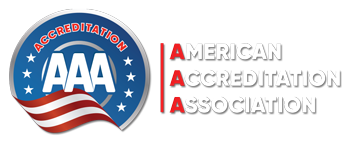Accreditation can be used to support government policy in different ways. For example, markets can ‘self-regulate’ through businesses voluntarily agreeing to meet set standards. This can be applied where there is a need to reassure markets on the conduct of business while minimising risks, but where there is no desire by government for regulatory intervention. For example, an industry or profession might choose to develop and adopt its own code of practice promoting ethical conduct. Government can encourage the use of standards to deliver policy, or indeed may wish to sponsor the creation of a standard for a particular purpose. Government might also work with an industry to develop a standard or code of practice or a means of determining compliance that involves other parties in setting standards and authorising the activity. Accredited conformity assessment provides this assurance of compliance with such standards.
Standards, accreditation, and conformity assessment are market-based tools that can be used by government policy makers to deliver better regulation, environmental protection, public safety, fraud prevention, fair markets and public trust. These tools are not as widely known and understood, or used, as they should be. However, there are many instances around the world where the public sector has embraced accredited conformity assessment as a means of delivering public policy objectives.
IAF published a document that contains an overview for policy makers, regulators and public sector officials explaining why and how these tools could be used in their areas of activity, using case studies which demonstrate how:
- Government can help improve the performance of business by encouraging the use of conformity assessment.
- Government can rely on accreditation bodies to minimise risks and promote trade.
- Accredited conformity assessment can help government deliver and enforce its policies.
- Private sector uses accreditation in order to deliver confidence in the marketplace.
- Accredited conformity assessment helps regulators implement policies.
- Government can improve its own performance by using conformity assessment in its own departments.
For further information Visit www.publicsectorassurance.org to access examples of how accredited conformity assessment is used around the world by central government, local government and regulators to deliver positive benefit. Case studies to demonstrate the value of accredited conformity assessment for businesses can be found on www.business-benefits.org . You can get access to the full report from here.
